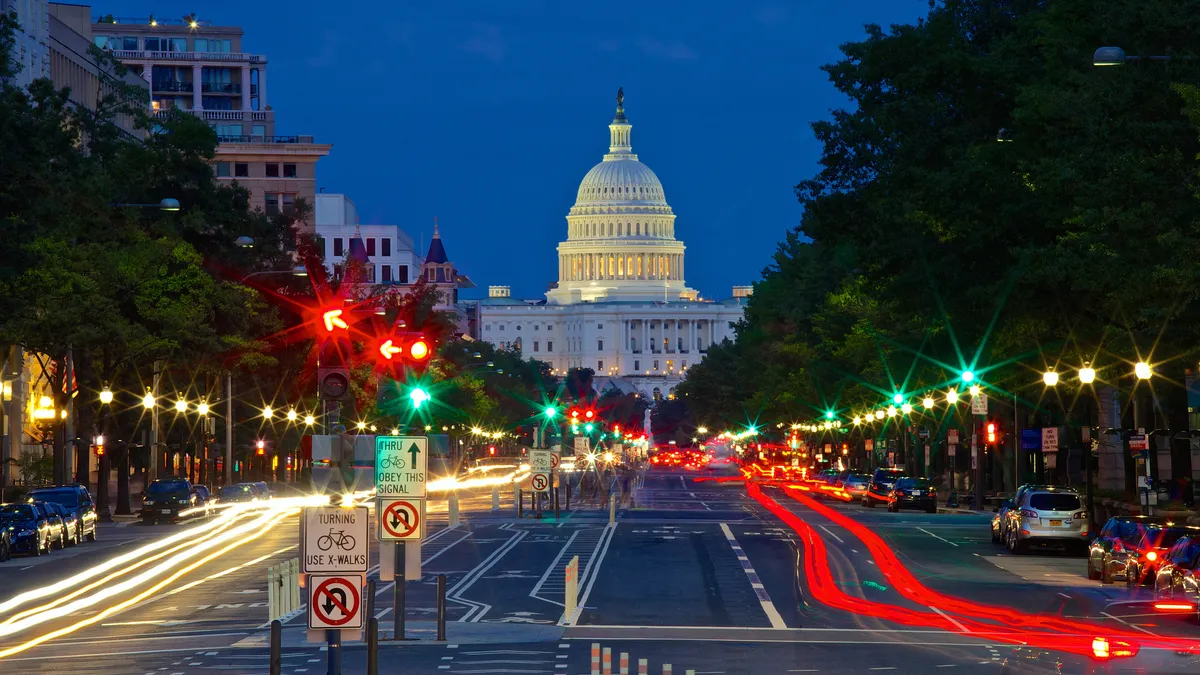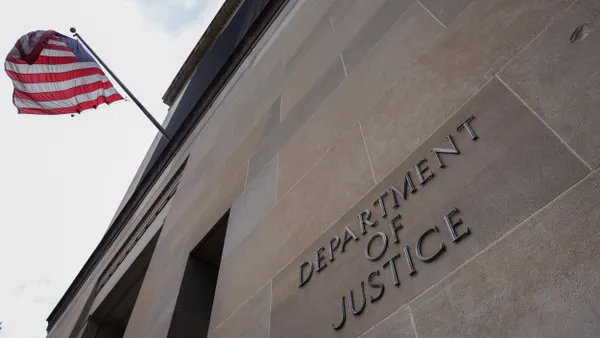UPDATED, Nov. 29, 2018: Washington, DC Mayor Muriel Bowser announced this week the appointment of Shawn Townsend as the Director of the Office of Nightlight and Culture. As "night mayor," Townsend will lead the new office, including a 15-member Commission of Nightlife, in promoting efficiencies for the city's after-hours economy.
Prior to this role, Townsend served as a supervisory investigator at the city's Alcoholic Beverage Regulation Administration (ABRA).
"With Shawn Townsend, Mayor Bowser has found an individual with the experience and perspective necessary to lead the Mayor’s Office of Nightlife and Culture in pursuing this important mission," said Ward 4 Councilmember Brandon Todd in a statement.
Dive Brief:
- Washington, DC Mayor Muriel Bowser signed a bill establishing the city’s first Office of Nightlife and Culture, a cabinet-level office that will serve as the main contact between the nightlife industry and city residents.
- The city will also establish a 15-member Commission of Nightlife, made up of government officials, private-sector representatives and community members. The commission will meet quarterly to discuss regulations, complaints, safety and other policies affecting nightlife establishments.
- The city has still not named a director of the office, known as a "Night Mayor." An online listing says that job will pay between $97,434 and $118,000.
Dive Insight:
More than 30 cities — including New York, London and Orlando — have opened similar nightlife offices to help manage what is a crucial part of an urban economy. According to the DC Policy Center, there was a 50% increase in liquor licenses in DC between 2008 and 2017, with entire neighborhoods being transformed in the process as more bars and clubs moved in.
The growth of nightlife near booming neighborhoods means an inevitable culture clash, as residents complain about noise, crowds and disruptive behavior from partygoers. The office is meant to serve as a conduit for those complaints, with potential city intervention on issues like noise violations, or the crowding of Uber and Lyft vehicles during busy pick-up or drop-off times.
"Residents and visitors to Washington, DC know that we have world-class food and entertainment options in neighborhoods across the District that appeal to all ages and all tastes — and that those choices continue to grow,” Bowser said in a statement. “We know that this creates fantastic opportunities as well as a few challenges, and the Office of Nightlife and Culture is going to ensure that we’re working across DC Government, with our residents and businesses, to ensure a vibrant DC nightlife that works for everyone.”
Another issue the office will have to address is the impact that new restaurants and bars can have on previously residential neighborhoods, or how new social establishments can rapidly gentrify areas without much input from residents. DC Council Member Brandon Todd, who introduced the initial bill to create the nightlife office, told The Washington Post the office would have to "address the nighttime economy, but also address neighborhood concerns from people who may or may not want to see that kind of change occur."











